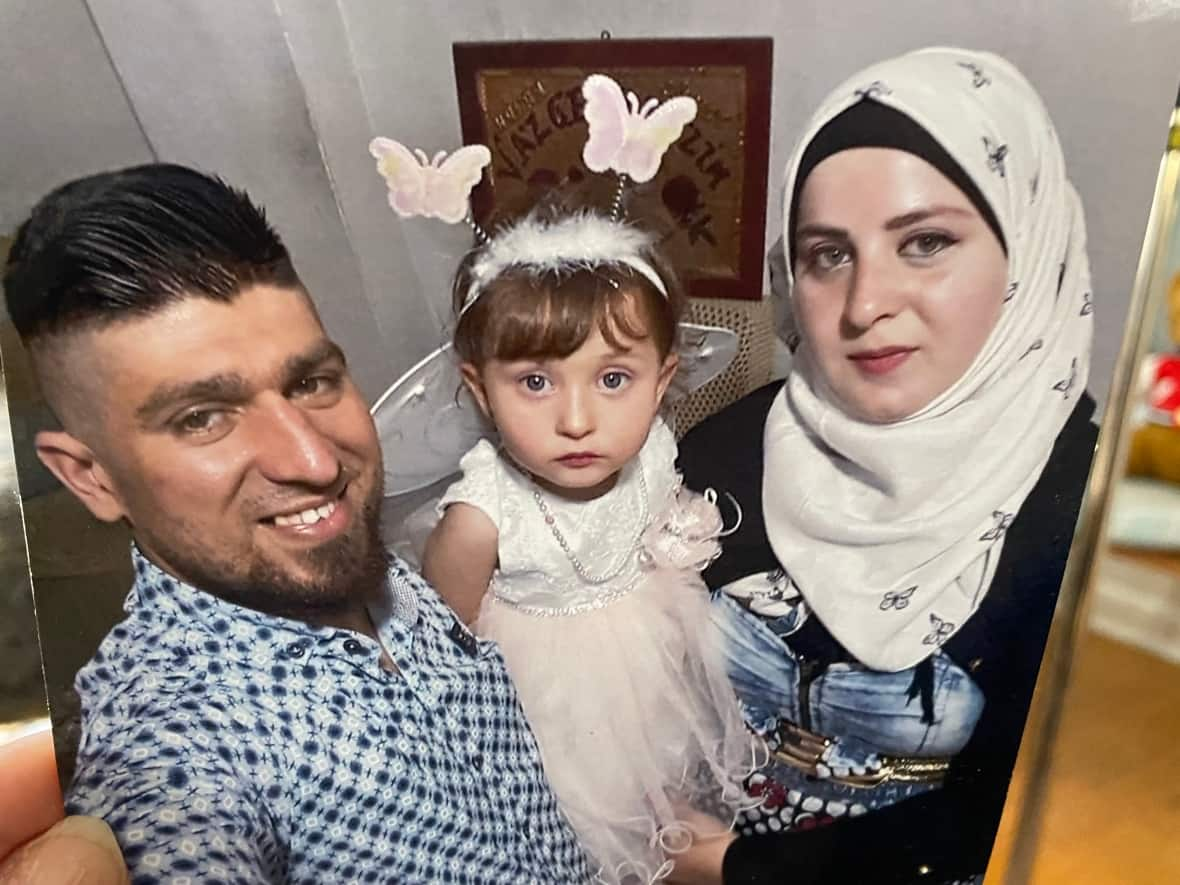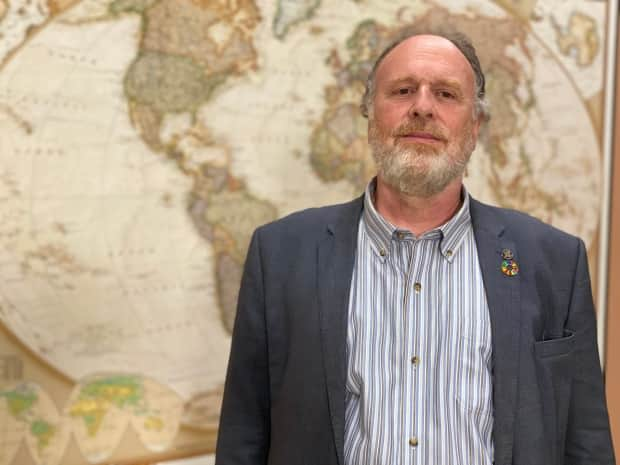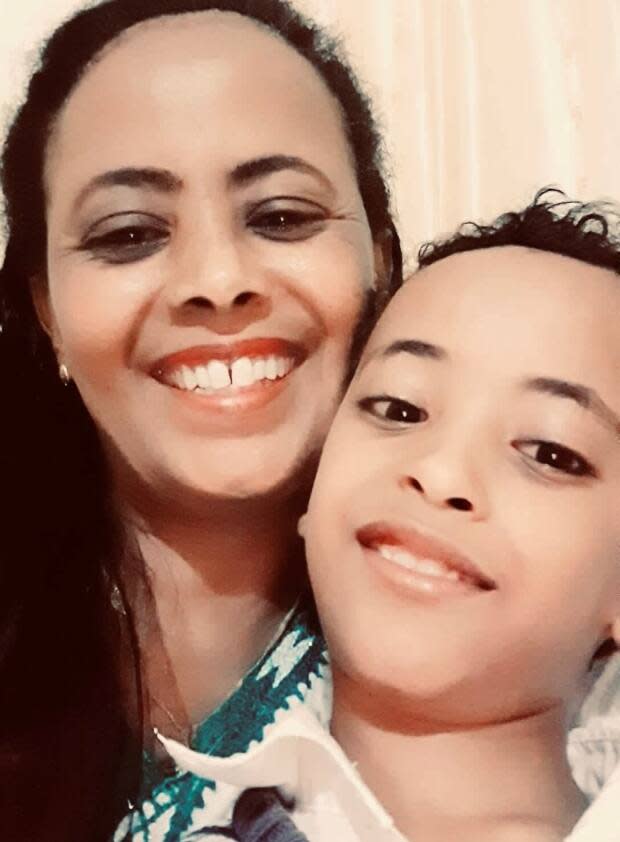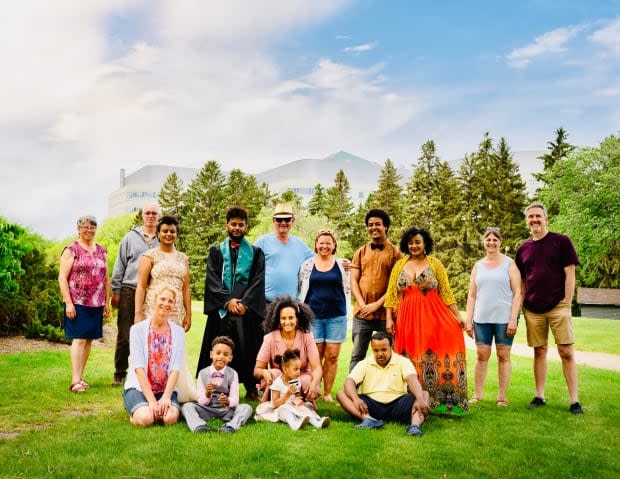Refugee sponsor groups accuse Ottawa of 'breach of agreement' as families wait to reunite

More than 100 groups across Canada that have formal agreements with Ottawa to privately sponsor refugees are accusing the federal government of breaching their agreements, leaving them unable to help vulnerable people.
These groups, known as Sponsorship Agreement Holders (SAHs), are religious, humanitarian, or community organizations that assume the full financial, legal and logistical obligations related to settling refugees in Canada. They often work with smaller community groups that handle the fundraising and arrange, among other things, housing, schools, and jobs.
Every year, SAHs are each allotted a certain number of refugees — for a combined total of roughly 10,000 to 12,000 — for whom they can submit applications to Immigration, Refugees and Citizenship Canada, which then carries out interviews, medical check-ups, and security clearance.
The Canadian Refugee Sponsorship Agreement Holders Association (SAH Council) wrote a letter to the federal minister, Shawn Fraser, on June 20 to complain that Ottawa still hasn't given its members their annual allotment of sponsorship spaces, which it says is "a breach of the Sponsorship Agreement." It's calling for the immediate release of 2022 allocations.
"SAH's are facing a quickly diminishing window of time to submit new sponsorship applications within this calendar year," the Council said, adding that it's difficult to plan or confirm support to vulnerable refugee families.

"It's frustrating," said Mark Bigland-Pritchard, a migration and resettlement coordinator for the Mennonite Central Committee (MCC), a faith-based agency that's had a sponsorship agreement with Ottawa for about 40 years.
"The bulk of our allocation, we just cannot submit until the time comes that they permit us to."
These delays endanger thousands of people who are facing persecution or living in dangerous places, he said.
Families separated, refugees at risk
Three applications that are still sitting on his desk, ready to be submitted, belong to nine-year-old Adnan Kharsa's parents and sister. As CBC News reported in April, the Syrian boy has been separated from his family, who are in Turkey, for five years. He made it to Saskatoon with his grandmother and uncle as a privately-sponsored refugee last year.
Adnan's aunt, Doha Kharsa, who lives in Saskatoon, formed a sponsorship group in the community and raised $40,000 to privately sponsor Adnan's parents and sister. Then, she teamed up with MCC, as the sponsorship agreement holder, to submit their applications as part of its 2022 allotment.
Bigland-Pritchard says MCC is normally allotted about 400 spaces a year, and those numbers are usually confirmed in February. That didn't happen this year. In May, the federal government allowed each sponsorship agreement holder in Canada to submit 25 applications.
Kharsa was disappointed to learn Ottawa hasn't accepted more applications, including hers.
"It's shocking," she said. "I don't know how to tell my mom, or even Adnan, or even my brother in Turkey about this."
"I don't understand why. The money is there. The applications are ready to go. So why the delay?"
WATCH | Syrian refugee Adnan Kharsa has been separated from parents for 5 years:
In the letter to Fraser, the SAH Council said it "acknowledged the tremendous pressure IRCC currently faces in its response to multiple global crises." It said IRCC had indicated to SAH Council that the delay is, in part, due to what it called "processing challenges" at the Resettlement Operations Centre in Ottawa.
In a statement to CBC News, IRCC did not offer an explanation for the delays.
"The Department is actively working to release the remaining 2022 allocations to SAHs," said the statement attributed to a spokesperson for Fraser.
"We can confirm that we received a letter from the Canadian Refugee Sponsorship Agreement Holders (SAH) Association and will be responding directly to address their concerns. We look forward to continuing our working relationship with the Canadian Refugee Sponsorship Agreement Holders."
2-3 year wait after application goes in
Bigland-Pritchard said it's critical to resume steady sponsorship submissions because getting the application into the system is only the first step.
After that, the processing time for MCC's privately-sponsored refugees is about two to three years. For example, MCC is still waiting for half of the refugees they applied for in 2019 to arrive in Canada, and most of the people they applied for in 2020 haven't arrived.
He said he feels Ottawa is doing a good job providing timely refuge to people fleeing the crises in Ukraine and Afghanistan, but other places in the world are facing significant delays.
"It seems to be longer for people in Africa than in other parts of the world," he said.

Feven Tesfay, 35, an Eritrean Canadian who lives in Saskatoon, is trying to get her sister, her sister's four kids, and her cousin out of Ethiopia. The Eritrean refugees were sheltering at a refugee camp in Ethiopia, but fled to the capital of Addis Ababa following violent attacks inside the camp.
Tesfay and her three siblings in Canada raised more than $30,000 and worked with MCC to submit applications in late 2020 for her sister, Tsigereda Tesfay, her nephews and niece, and then later, her cousin, a single woman in her twenties.
"They can't work. It's very unsafe," said Tesfay, who sends money to them in Ethiopia every month.
She received an initial email confirmation from Ottawa when they first submitted the application, but nothing since. There hasn't been a field interview or medical check-ups. Tesfay worries about them constantly.

"After we did all this, if they're not safe at the end of the whole process, if something happens to them, that would be a disaster," said Tesfay.
Doha Kharsa had braced herself for a two or three year wait after Adnan's parents' applications are submitted, but she didn't expect that the paperwork wouldn't even be accepted in Ottawa yet.
Meanwhile, she said, Adnan is growing up without his parents.
Read the whole letter here:


